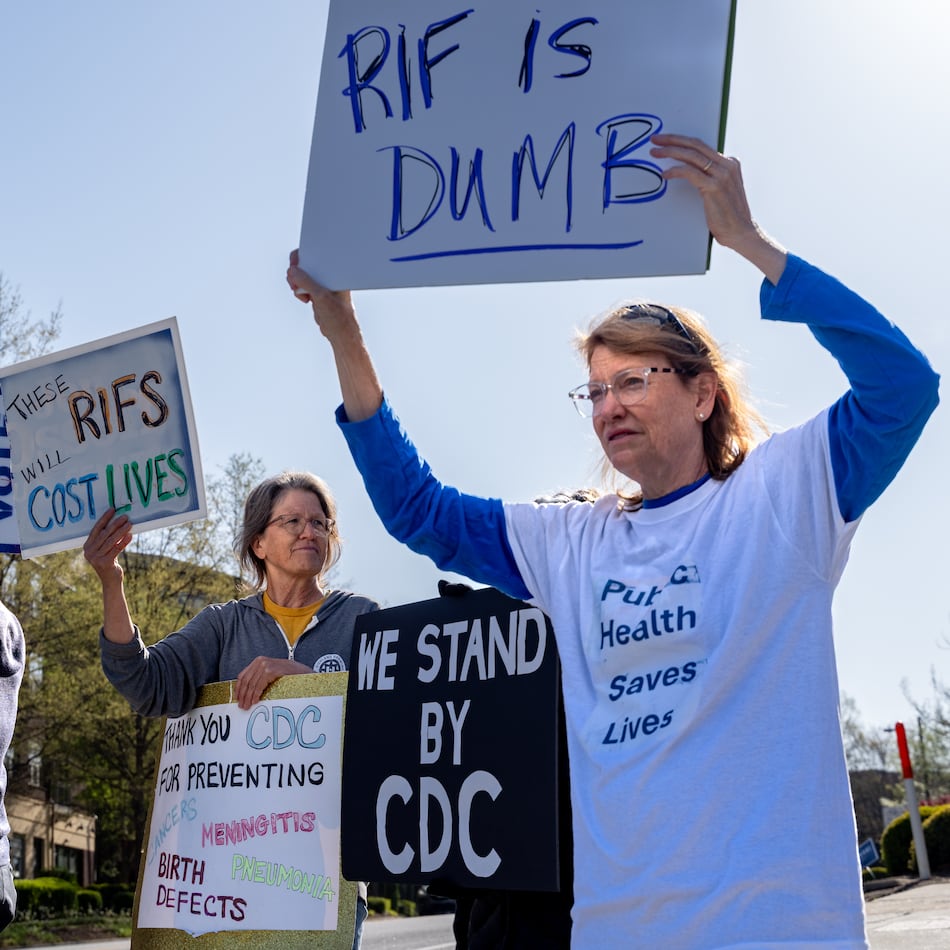UPDATE [7 p.m.]: In the seven hours since its last report, the Georgia Department of Public Health has confirmed an additional 223 cases of COVID-19, bringing the state's total to 6,383.
Health officials also reported another seven deaths, meaning the total number of Georgians killed by the highly contagious disease now stands at 208.
As of noon, there were 6,160 confirmed cases and 201 deaths.
Of Georgia’s overall cases, 1,266 patients remain hospitalized, a rate of nearly 20%, according to the 7 p.m figures. That number is up from 1,239 confirmed hospitalizations Saturday afternoon.
Fulton County still has the most cases with 959, up from 941 earlier today. Dougherty County has the second most with 685, followed by DeKalb County with 539 and Cobb with 453, according to the latest data.
Dougherty had 49 new confirmed cases since noon and one additional death. The southwest Georgia county has lost 30 people to COVID-19, more than any other county in the state. Cobb County reported an additional three deaths, bringing its total to 23.
Wayne County also reported its first case, meaning coronavirus cases have been confirmed in all but 11 of the state’s 159 counties.
— Please return to AJC.com for updates.
ORIGINAL STORY [noon]:The coronavirus has now killed more than 200 people across the state as the number of confirmed cases in Georgia increased to 6,160 on Saturday.
According to the Georgia Department of Public Health, 201 Georgians have died from complications related to COVID-19, the highly contagious disease caused by the novel coronavirus.
» COMPLETE COVERAGE: Coronavirus in Georgia
As of noon, state health officials reported an additional 193 cases since Friday evening and three new deaths, according to the latest data.
A statewide shelter-in-place mandate went into effect at 6 p.m. Friday in an effort to limit residents’ travel and curb the spread of the virus. The order requires Georgians to remain in their homes for all but essential activities, which include buying food, seeking medical care, working in critical jobs or exercising outdoors.
» RELATED: Confusion surrounds Georgia's coronavirus lockdown
Of Georgia’s overall cases, 1,239 patients remain hospitalized, a rate of just over 20%, according to the noon figures. That number is up from 1,222 confirmed hospitalizations Friday evening.
The number of COVID-19 cases in the state has tripled in just over a week. Health officials announced that Georgia surpassed 2,000 cases on March 27.
Fulton County has the most cases with 941, followed by Dougherty County with 636, DeKalb County with 500, and Cobb with 428, according to the latest data.
Fulton reported 31 new cases since Friday while hard-hit Dougherty County reported 29 more.
The southwest Georgia county of about 90,000 has lost 30 residents to COVID-19, more than any other county in Georgia.
MORE: City under siege: Coronavirus exacts heavy toll in Albany
The number of cases across the state is expected to spike even more in coming weeks as plans are put in place to increase daily testing capacity. Projections suggest the state could see thousands of new cases and hundreds more deaths before the virus is contained.
As of Saturday, 26,294 tests have been conducted across the state with about 23.4% returning positive results. The rate of Georgia patients who have died of COVID-19 stands at nearly 3.3%.
» DASHBOARD: Real-time stats and charts tracking coronavirus in Georgia
So far, the oldest patient to die in the state was a 96-year-old Bibb County woman while the youngest was a 29-year-old woman from Peach County.
For most, COVID-19 causes only mild or moderate symptoms. Older adults and those with existing health problems are at risk of more severe illnesses, including pneumonia. The vast majority of people recover in a matter of weeks.
Those who believe they are experiencing symptoms or have been exposed to COVID-19 are asked to contact their primary care doctor or an urgent care clinic. Do not show up unannounced at an emergency room or health care facility.
Georgians can also call the state COVID-19 hotline at 844-442-2681 to share public health information and connect with medical professionals.
About the Author
Keep Reading
The Latest
Featured



